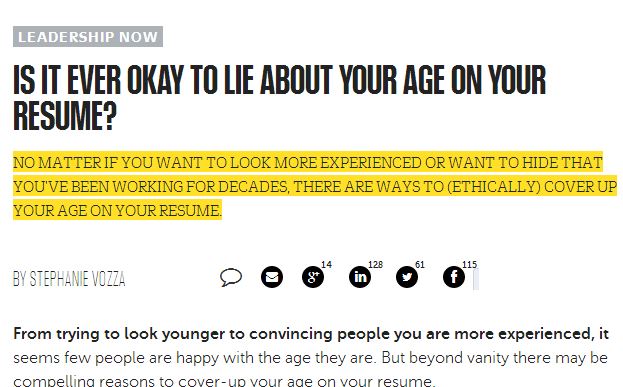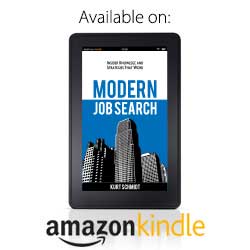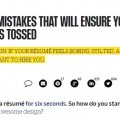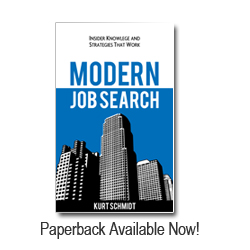
Wrong, Wrong, Wrong – Lying is Never Okay
By Kurt Schmidt In Blog On May 28, 2014
Here’s an easy way to tell if advice is good or not: Would you share it with your children? Would you ever tell your children that it is okay to lie? Probably not.
The advice provided in Stephanie Vozza’s latest column in Fast Company, “Is It Ever Okay To Lie About Your Age on Your Resume” is wrong on every level and will not result in better job search results. Period. This shouldn’t come as any surprise but when I looked up Stephanie’s profile on LinkedIn there was nothing in her experience about being a Recruiter, an HR Manager or anything else related to hiring. In fact, she has zero expertise on this subject. So why in the world would you ever take her advice about this? You shouldn’t and here’s why.
A lot of Vozza’s “advice” comes second hand via an interview with Lisa Johnson Mandell who is pimping her new book, “Career Comeback,” which I assumed was based on her significant experience as an HR professional, recruiter, or other source of job search expertise. Imagine my surprise when I found her profile on LinkedIn and again discovered that she also has zero significant job search or HR related experience. Mandell explains that when she asked her husband why she keeps getting passed over for jobs “she thinks she should have been offered” he said that it’s because the employers are discriminating against her because of her age. So, according to her, the solution, obviously, is to lie about it. In fact the subtitle of her book basically says the same thing: “Repackage Yourself to Get the Job You Want.”
In order to really effectively lie, Mandell suggests the following: “(1) Delete work experience that is 15 years or older (from your resume); (2) Remove your year of graduation; (3) Highlight your best accomplishments.”
Starting Mandell’s first point, as a recruiter and as someone who has spent years and years working with HR staff at some of the largest and most highly respected companies in the world, I can tell you without hesitation that one of the first things we all look for is a clear chronology. I want to know what you’ve done and where you’ve been working and I want to see it in an ordered format. If the chronology is incomplete, it raises questions – not the good kind.
Next, Mandell suggests omitting your graduation date – as if people aren’t savvy enough to figure out that it’s been omitted on purpose and that purpose is to try to obfuscate your age. Busted! I know (and so does everyone else) that if the graduation date is not there, the candidate is trying to mask their age, or cover up something else. Excluding your graduation date from your resume is a mistake because it causes the reader to form a conclusion without the benefit of the facts and prompts unnecessary questions.
Finally Mandell advises that people “highlight” their best accomplishments, which is typically good advice. However, where she goes wrong is by suggesting that candidates whose best accomplishments are from jobs that they excluded from their resumes put the accomplishments in their “career objective” summaries at the top of their resumes. Again, this is completely wrong. Accomplishments without context are worthless. If I see that one of my candidates lists what looks like a strong accomplishment on their resume but I can’t see where or when they did it, I’ll ask about it. Then what? They either have to disclose some experience that’s not on their resume – and explain why it’s not there, or they have to continue the lie. Either way, it’s not a useful conversational tangent when the focus of the call or interview should be on the job that needs doing.
At this point, the Vozza / Mandell team is 3 for 3 in terms of giving terrible advice to job seekers. Honestly, I can’t believe Fast Company, a magazine I actually like and cite regularly, published this drivel. If there’s anything useful at all to take from this article it is this: Following this advice will do you more harm than good.
Here’s another way to think about it: Consider what would happen if you followed all of this advice and got an interview? Are you going to dye out your gray hair? Perhaps buy some “younger looking” clothes? Maybe grow a hipster beard? How are you going to continue the lie? You’re not. The truth is going to come out and you’re going to be eliminated from consideration from the job because you lied. It’s a shame too, because maybe you could have gotten the job based on your true qualifications.
Maybe there is a lot of age discrimination in Hollywood – where Mandell is looking for work. However, here’s how things work in the rest of the world:
“There may be age discrimination in some cases but in my experience finding the right mix of skills and education is hard enough without also having to filter by some set of discriminatory standards. Discrimination is inefficient. Regardless, you are who you are, and trying to hide it or mislead in the hopes of getting an interview only moves back the inevitable. Surprises are never good in the hiring process. Don’t surprise potential employers.
From a time management standpoint, you should want to know sooner rather than later if a company is or isn’t interested for any reason. If they don’t think you’re a fit for the position or their culture, you should move on. You are also evaluating them. It is important not to spend time trying to get in or fit in situations that have too much resistance. There are plenty of potential employers. Making sure all of the information is on your resume eliminates unnecessary questions and saves time. Complete your chronology. The right employer will value your experience.” (Modern Job Search – Chapter 3)
I don’t like bashing another person’s work, particularly work designed to help people, as this article and book are ostensibly meant to do, but what they wrote, like lying in general, is not only wrong but counterproductive and potentially harmful.
Bottom line: Tell the truth, rate potential employers based on their reactions and keep moving until you find one that values what you really bring to the party.








